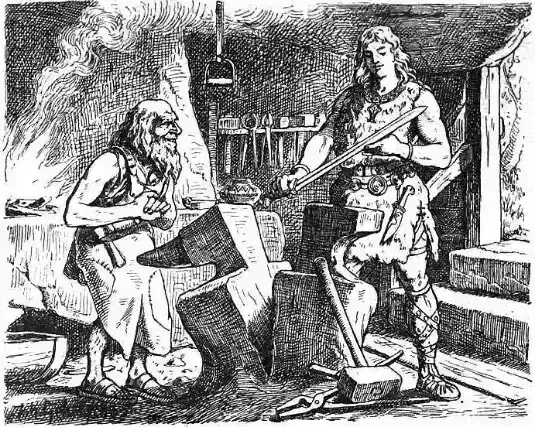Sigurd

Sigurd (also known as Siegfried) is one of the greatest heroes in Germanic legend, most famous for slaying the dragon Fáfnir. This deed earned him the title "Fáfnir's bane" across Nordic countries and the broader epithet "the Dragon Slayer." The legend appears in both Norse and Germanic traditions, with Sigurd's story being told in several major medieval works including the German epic Nibelungenlied, the Norse Völsunga saga, and the Poetic Edda. In both traditions, Sigurd meets a tragic end stemming from a complex web of deception and rivalry.
He helps his friend, the Burgundian king Gunnar (Gunther in German versions), win the hand of Brunhild through trickery. However, this deception later leads to fatal consequences when conflict erupts between Brunhild and Sigurd's wife Gudrun (known as Kriemhild in German tradition). Another constant element across versions is Sigurd's possession of the legendary Nibelungen treasure hoard after slaying the dragon, though other aspects of his story vary between Norse and Germanic tellings.
The enduring popularity of Sigurd's legend is evidenced by its preservation in numerous medieval works from both Germany and Scandinavia, including a collection of ballads that continued to be sung well into the early modern period. His name appears in different forms across languages - Sigurðr in Old Norse and Sîvrit in Middle High German - reflecting how widely his story spread throughout medieval Northern Europe.


